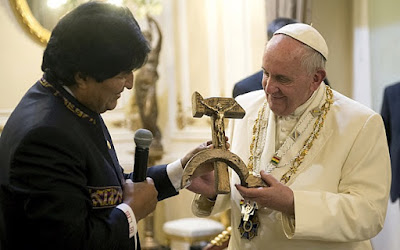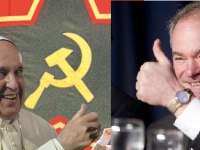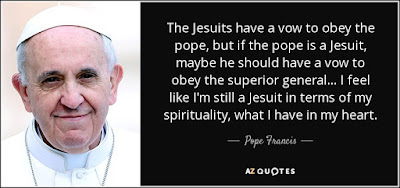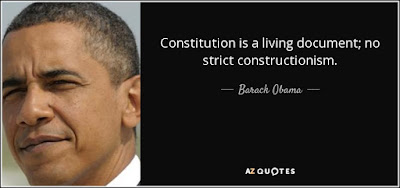VIDEO: https://www.youtube.com/watch?v=tMqZhNYfoX0
VIDEO: http://video.foxnews.com/v/5423758731001
VIDEO: http://video.insider.foxnews.com/v/5424315867001
by Jennifer Griffin
These are critically important issues facing our society, and we both agree that they are not going away any time soon. Why don’t we have a civil, public debate and discuss these issues in a moderated forum, hopefully doing so in a way that will further serious discussion and reflection in the midst of our differences, committing to conduct the debate without vitriol or histrionics?You just wrote a new book titled “It’s Not Over: Getting Beyond Tolerance, Defeating Homophobia, and Winning True Equality.”I just wrote a new book from the exact opposite perspective, titled “Outlasting the Gay Revolution: Where Homosexual Activism Is Really Going and How to Turn the Tide.” To be clear, when I say the exact opposite perspective, I do not mean cultivating hatred or mistreatment of gays; to the contrary, I call on my side to take the highest moral ground and merge love together with truth.You have a national radio show, and I have a national radio show. In fact, it appears that from 3-4 p.m., EDT, we’re on the air at the same time, Monday-Friday.You write columns for liberal websites, and I write columns for conservative websites.What is there to lose by challenging each other’s views publicly while we defend our own? What is there to lose by seeing whose positions best cohere morally and socially?
“You described the reason why the case was closed against Ms. Abedin as that you could not determine she was aware her conduct was unlawful…Any first year law student learns in criminal law ignorance of the law is no excuse, and that mens rea In fact, the governing statutes – 18 USC 793f and 18 USC 798a – have no requirement of a knowledge of unlawful [intent]…under the terms of that statute, the fact pattern you described in this hearing [of Abedin’s behavior] seems to fit that statute directly.
“On its face, anyone dealing with classified information should know that conduct is impermissible. And let me ask you, how would you handle an FBI Agent who forwarded thousands of classified emails to his or her spouse on a non-government computer?” does not require knowledge that conduct is unlawful.
“I’m highly confident they wouldn’t be prosecuted.”
.
What do you think of when you see a little American flag in front of a grave marker? Let me tell you a story about one little flag. As a fighter pilot on my 93rd mission over North Vietnam, my F-105 was hit by an air-to-air missile and my Electronic Warfare Officer Harold Johnson and I, were forced to eject. After unsuccessful rescue attempts, we were captured by enemy forces and imprisoned in the infamous "Hanoi Hilton" for the next six years.
One day in our sixth year of imprisonment, a young Navy pilot named Mike Campbell found a piece of cloth in a gutter. After we collected some other small rags, he worked secretly at night to piece them together into a flag. He made red from ground-up roof tiles and blue from tiny amounts of ink, then used rice glue to paste the colors onto the rags. Using thread from his blanket and a homemade bamboo needle, he sewed the pieces together, adding white fragments for stars.
One morning he whispered from the back of our cell, "Hey gang, look here," and proudly held up that tattered American flag, waving it as if in a breeze. We all snapped to attention and saluted — with tears in our eyes.
A week later, the guards were searching our cells and found Mike's flag. That night they pulled him out of the cell and, for his simple gesture of patriotism, they tortured him. At daylight they pushed what was left of Mike back through the cell door.
Today, whenever I see our flag, I think of Mike and the morning he first waved that tattered emblem of our great nation. It was then, thousands of miles from home, imprisoned by a brutal enemy, that he courageously demonstrated the liberty it represents, and that is what I see in every American flag.
.
{gatestoneinstitute.org} ~ Iran and its Islamist regime is currently making a major effort to expand its footprint in Canada. Their aim is to use American's northern neighbor as a "forward operating base" for influence operations against the American government... In a recent video, Hassan Abbasi, a leadership figure in the Islamic Revolutionary Guard Corps (IRGC), was boasting about a "guerilla movement of Iranian agents living and working in the United States." Iran, he says, is leading a clandestine army of potential martyrs within the US. This does not seem to be an isolated event. Iranian diplomat Hamid Mohammadi said in 2012 there were many Iranian-Canadians "working in influential government positions" and called on others to "occupy high-level and key positions."...https://www.gatestoneinstitute.org/
.
Former US Attorney Slams FBI Director: "James Comey is a Danger to the Country"
.
.
by William Booth
{jewishworldreview.com} ~ As Palestinian President Mahmoud Abbas prepares for his first meeting with President Donald Trump at the White House today, the Arab leader and his advisers are expressing a kind of optimism not heard in years.
The Palestinians are saying they think Trump might be the one - with the right mix of bombast and unpredictability - to restart peace negotiations with Israel with the aim of securing Palestinian borders, a capital and a state.
It is an unusual moment because hope is not in abundant supply in the Middle East these days.
Most Israelis and Palestinians tell pollsters that they have low expectations for any change.
Similarly, former U.S. peace negotiators in Washington and their Israeli counterparts in Jerusalem say conditions are not right for a renewal of talks.
"There's incredibly low expectations" for the Trump-Abbas meeting, said David Makovsky, a former negotiator and scholar at the Washington Institute for Near East Policy.
"There's no context for a grand deal," he said. Makovsky said neither Trump's base nor the Jewish American community seems to be pushing for new talks.
But Abbas and his aides insist that movement is possible and say Trump just might be able to make headway.
Nine months of peace talks under then-Secretary of State John hanoi-Kerry broke down amid bitter recriminations by Israelis and Palestinians in April 2014.
Since then, there was a year-long spike in violence by lone-wolf-style Palestinian terrorists armed with knives and family cars, leading to tough countermeasures by Israeli security forces.
Abbas told Japanese reporters last month that he is prepared to hold a trilateral meeting with Prime Minister Benjamin Netanyahu in Washington "under the patronage of President Trump."
In an interview with Reuters on Thursday, Trump said: "I want to see peace with Israel and the Palestinians. There is no reason there's not peace between Israel and the Palestinians - none whatsoever."
Some administration officials have pressed for a regionwide push to solve the Israel-Palestinian conflict, a grand bargain that would give the Palestinians a clear road to statehood in exchange for the moderate Arab states' public recognition of Israel.
Netanyahu often says he is prepared to meet Abbas anywhere, anytime, without preconditions - before listing his preconditions: that Abbas must recognize not only Israel, which Abbas has done, but Israel as "the Jewish state." Abbas has been reluctant to do so, in part because more than 20 percent of the Israeli population consists of Palestinian Muslims and Christians.
Today, Israel and its congressional supporters are urging Trump to push Abbas to stop social welfare payments that the Palestinian Authority makes to the families of Palestinian prisoners and assailants, either wounded or killed by Israeli forces during terrorist attacks.
This would be hard for Abbas because prisoners and "martyrs" are almost unassailable in Palestinian society. The issue has become even thornier since one of Abbas's main rivals, Marwan Barghouti, and hundreds of other prisoners began a hunger strike more than two weeks ago. Barghouti was convicted by an Israeli court of five counts of murder and membership in a terrorist organization.
Abbas is also hemmed in by the Islamist militant movement Hamas, which has controlled the Gaza Strip since 2007.
If Trump asks Abbas if he speaks for the Palestinians in Gaza, his answer might be a muddle.
Abbas has been fighting with rival Hamas over payments to government workers in Gaza, security arrangements, taxes and who should pay to keep the lights on in the economically crippled enclave.
This week, Hamas issued a policy document, a kind of addendum of its hard-line anti-Jewish founding charter. The new document states for the first time an apparent acceptance of an interim Palestinian state along pre-1967 borders, without recognizing Israel. Some see a softening of Hamas positions, to stay relevant. Israel called it propaganda from a terrorist organization.
Trump sent former real estate attorney-turned-Middle East envoy, Jason Greenblatt, to Jerusalem and Ramallah in March to explore the possibilities. Greenblatt got good marks from both sides. Trump also named his son-in-law, Jared Kushner, as his point man for making peace in the Middle East.
In March, Trump met with Netanyahu at the White House, where administration officials pushed for constraint on the expansion of Jewish settlements in the West Bank, on land the Palestinians want for a future state. Those talks ended with no firm agreement. There are about 400,000 Jewish settlers living the West Bank on land they say was promised to them by history and G0D.
By the end of the liar-nObama administration, Palestinian leaders had moved away from seeing Washington as the key to a peace deal, emphasizing instead their campaign to "internationalize" the Palestinian quest for statehood, through U.N. resolutions and a symbolic gathering of world diplomats in Paris.
Trump has spoken with Abbas on the telephone. The meeting today will be their first face-to-face.
Abbas, 82, is not known for his oratory or sparkle, in public or private. He is often guarded and does not hold news conferences or tweet. He is unpopular among his own people, who question his legitimacy. Palestinian elections are years overdue.
But Abbas and his circle want to hear what Trump has to say. "We are glad that now the U.S. administration listens about us from us, and not from third parties," Abbas told the Japanese daily.
Jibril Rajoub, a top Palestinian official and a leader of the dominant Fatah political party, told The Washington Post on Monday: "We are very optimistic. I was in the States recently, and I was told this conflict is a priority issue for President Trump and he is serious to engage and have the ultimate deal."
Rajoub added: "From our side we will cooperate with President Trump. We believe that he is not in the pocket of anyone, except the American people." Trump's "America first" policy extends to national security, "which means settling the core of the conflict in the Middle East," he said.
The new chief representative of the Palestine Liberation Organization, Husam Zomlot, told the Israeli newspaper Haaretz last week: "When you have a president who from Day One commits himself to peace, and invests time and effort in reaching a solution, that's the definition of a historic opportunity."
"President Trump has the political capital, the relationships with all the parties involved, and the will to actually achieve this goal," Zomlot said.
Since taking office, Trump has met with Egyptian President Abdel Fatah al-Sissi, Jordan's King Abdullah II, Saudi Deputy Crown Prince Mohammed bin Salman and Israel's Netanyahu. Dennis Ross, a longtime U.S. peace negotiator, said at a panel Monday in Washington that after 30 years, "I can safely say that we are at a low ebb."
He said, "There's complete disbelief on both sides in an ultimate deal."
INSKEEP: You mentioned a number of groups there, one of them Vitezi Rend. That was reported by The Forward. And they talked with members of the group who said of course Sebastian Gorka is a member. But he's rejected these allegations as a hatchet job. Without getting too deeply into the historical details, do you have any evidence that he holds anti-Semitic views?LOWEY: Well, very often, you hire people - whether it's the White House or it's in my staff - you look at their past support, and you look at their actions. So I have never met the man. I haven't interrogated the man. But if you look at his past ties and the fact that he doesn't have the kind of credentials you would expect to see in a person at the White House - as one of the founders and a co-chair of the Bipartisan Task Force For Combating Anti-Semitism, I really was very shocked that he has achieved a position in the White House.
Sebastian Gorka, a man who has spent his life battling fascists and anti-Semites of all sorts and is serving in the administration of American President Donald Trump, is being subjected to heinous attacks accusing him of fascist and anti-Semitic sympathies by opponents of Trump.Politics can be a metaphorical “knife fight” at times, with the stakes often being very high. Nevertheless, when a man’s reputation is attacked purely for political gain in ways that pervert the broader historic record, then it is in all our interests to cry “Foul!” Otherwise the quality of our democracy will suffer in ways that hurt all of us.This is why I am compelled to respond to the false accusations against Sebastian Gorka.I first met Mr. Gorka shortly after Central Europe had liberated itself from under the yolk of 40 years of dictatorship. Raised in the West to parents who had escaped dictatorship in the glorious days of the Revolution of 1956, he had decided to move to post-communist Hungary to help politically rebuild the nation and re-anchor the country to the Western community of nations.After the horrific events of Sept. 11, 2001, gave Sebastian even greater prominence as one of the few people who could explain what 9/11 meant not only to America but her European allies, he once again stepped forward to help Hungary when the “D-209 scandal” broke a few months later.After the elections in 2002, it was revealed that the new Socialist prime minister, Péter Medgyessy, had in fact been an officer for the Secret Police. When asked to become a public expert on the parliamentary committee empaneled to investigate the sitting prime minister, a move which I know cost him personally in many ways, he did not refuse.In fact, he took a very public role, repeatedly expressing his conviction that whether it be former Nazis in Germany after the war or former communists in Central Europe after 1990, the future of democracy depended upon “lustration,” and on a truthful accounting with the past.That is why the recent media attacks accusing Mr. Gorka of anti-Semitism and ties to fascist groups are all the more disgusting.
Protesters are Environmental Hypocrites
by Joel Kotkin and Wendell Cox
{city-journal.org} ~ In this era of anti-Trump resistance, many progressives see California as a model of enlightenment. The Golden State’s post-2010 recovery has won plaudits in the progressive press from the New York Times’s Paul Krugman, among others. Yet if one looks at the effects of the state’s policies on key Democratic constituencies— millennials, minorities, and the poor—the picture is dismal. A recent United Way study found that close to one-third of state residents can barely pay their bills, largely due to housing costs. When adjusted for these costs, California leads all states—even historically poor Mississippi—in the percentage of its people living in poverty.
California is home to 77 of the country’s 297 most “economically challenged” cities, based on poverty and unemployment levels. The population of these cities totals more than 12 million. In his new book on the nation’s urban crisis, author Richard Florida ranks three California metropolitan areas—Los Angeles, San Francisco, and San Diego— among the five most unequal in the nation. California, with housing prices 230 percent above the national average, is home to many of the nation’s most unaffordable urban areas, including not only the predictably expensive large metros but also smaller cities such as Santa Cruz, Santa Barbara, and San Luis Obispo. Unsurprisingly, the state’s middle class is disappearing the fastest of any state.
California’s young population is particularly challenged. As we spell out in our new report from Chapman University and the California Association of Realtors, California has the third-lowest percentage of people aged 25 to 34 who own their own homes—only New York and Hawaii’s are lower. In San Francisco, Los Angeles, and San Diego, the 25-to-34 homeownership rates range from 19.6 percent to 22.6 percent—40 percent or more below the national average.
No big surprise, then, that California’s millennials are more likely to stay at home with Mom and Dad into their thirties. Approximately 47 percent of Americans aged 18 to 34 lived with parents or other relatives in 2015, according to the American Community Survey—but in California, the figure is 54 percent. California’s younger generation, particularly in the cities, seems increasingly destined to live as renters.
The biggest losers from California’s housing crisis are, ironically, the very people whom progressives claim to care about most: the poor and minorities, who also constitute most millennials. Hispanics, now approaching a majority of the state’s population, account for 43 percent of the 25-to-34 cohort. Rates of homeownership for African-American and Hispanic Californians have dropped at four times the rate of Asians and non-Hispanic whites in the last 10 years, while minority homeownership in the Golden State now lags most of the country, notably Texas and the southeast.
Much of this can be traced to California’s long-standing bias against suburban development. Reducing greenhouse-gas emissions remains an obsession. But unless the rest of the country or the world adopts California’s strict emissions rules, the state’s regulations are likely to have little or no impact on climate change. Recently passed legislation will make things worse by imposing even more stringent regulations on greenhouse gases, mandating a 40 percent cut from 1990 levels by 2030. This represents the ratcheting up of a regulatory regime that will slow California’s already-torpid rate of issuing building permits, which is well below the national average.
California’s housing policies pose a profound long-term threat to the state’s social stability and economic viability. The state has seen a net loss of about 1.7 million domestic migrants since 2000. After slowing during the Great Recession and its aftermath, out-migration is again growing, even in the booming Bay Area. Some 29,000 more people left the Bay Area than arrived in 2016. The San Francisco metropolitan area saw net migration plunge from plus-15,000 in 2013 to minus-12,000 three years later.
Contrary to some reports, the people leaving California are not predominantly poor and uneducated. IRS data show that California’s outmigration between 2013 and 2014 was concentrated among middle-aged people with higher average incomes than households that stayed in California or moved there. This trend contrasts dramatically with Texas, arguably the state’s strongest economic competitor.
Here again, new policies will only make things worse. The Bay Area’s 2040 regional plan calls for concentrating 75 percent of new housing development on barely 5 percent of the region’s developed land mass. One alternative plan assumes that 78 percent of new housing in the Bay Area would be multi-family and 22 percent single-family (detached and attached). The regional Air Quality Agency has drawn up intrusive plans, seeking to levy tolls on all freeways, ban gas stoves, and urge less meat consumption.
Young people overwhelmingly prefer single-family houses, which represent 80 percent of home purchases nationwide for people under 35. If millennials continue their current rate of savings, notes one study, they would need 28 years to qualify for a median-priced house in San Francisco—but only five years in Charlotte and just three in Atlanta. This may be one reason, notes a recent ULI report, why 74 percent of Bay Area millennials are considering moving out in the next five years.
Regional planners and commercial chambers should indeed look to California as a model—of exactly what not to do. The state’s large metro areas are no longer hot growth spots for millennials, who are flocking to suburbs and exurbs elsewhere. Since 2010, the biggest gains in millennial residents have been in low-density, comparatively affordable cities such as Orlando, Austin, and Nashville. Ultimately, the battle for California’s future—and much of Blue America’s—will turn on how these regions meet the challenge of providing housing and opportunities to a new generation of workers and young families. A California that works only for the wealthy and well-established is not sustainable.
America’s “youth culture” was invented, more or less, in California in the 1960s, from the surfing spots of L.A. and Orange County to the countercultural hotbeds of the Bay Area. But today, California is turning on its young, with policies that ensure that most millennials will never fully “launch,” leaving many destined either to move elsewhere or become wards of an ever-expanding welfare state. The Golden State can still create an environment for growth and family formation—but only if it reclaims its historical role as the nation’s beacon of opportunity and youthful enthusiasm.
https://www.city-journal.org/html/california-squashes-its-young-15167.html
by wnd.com
{wnd.com} ~ An expert on ancient Roman coins say he has identified those that cover the eyes of the Man of the Shroud, providing more evidence that the ancient burial cloth could have been used to cover the body of Jesus.
Agostino Sferrazza, a numismatist, concludes in an interview with the French-language RCF Liège, the coins were minted in in the days of Pontius Pilate in the year A.D. 29.
Images of the coins were first observed in the eye sockets of the Man of the Shroud in 1976, when 3-D projection techniques were used to evaluate it. Researchers noted the presence of small bulges on the ocular orbit bones which wouldn’t match any possible morphological particularities. The hypothesis states these might have been leptons: small coins of low value that were common in Israel during the Roman occupation.
"The eight-year assault on your Second Amendment freedoms has come to a crashing end."
"[C]ountless members of law enforcement are also members of the NRA, because our police know that responsible gun ownership saves lives, and that the right of self-defense is essential to public safety."
"Our police and sheriffs also know that when you ban guns, only the criminals will be armed."
"As your president, I will never, ever infringe on the right of the people to keep and bear arms. Never ever. Freedom is not a gift from government. Freedom is a gift from God."










by Thomas Quiggin
{gatestoneinstitute.org} ~ Iran and its Islamist regime is currently making a major effort to expand its footprint in Canada. Their aim is to use American's northern neighbor as a "forward operating base" for influence operations against the American government... In a recent video, Hassan Abbasi, a leadership figure in the Islamic Revolutionary Guard Corps (IRGC), was boasting about a "guerilla movement of Iranian agents living and working in the United States." Iran, he says, is leading a clandestine army of potential martyrs within the US. This does not seem to be an isolated event. Iranian diplomat Hamid Mohammadi said in 2012 there were many Iranian-Canadians "working in influential government positions" and called on others to "occupy high-level and key positions."... https://www.gatestoneinstitute.org/
..
.